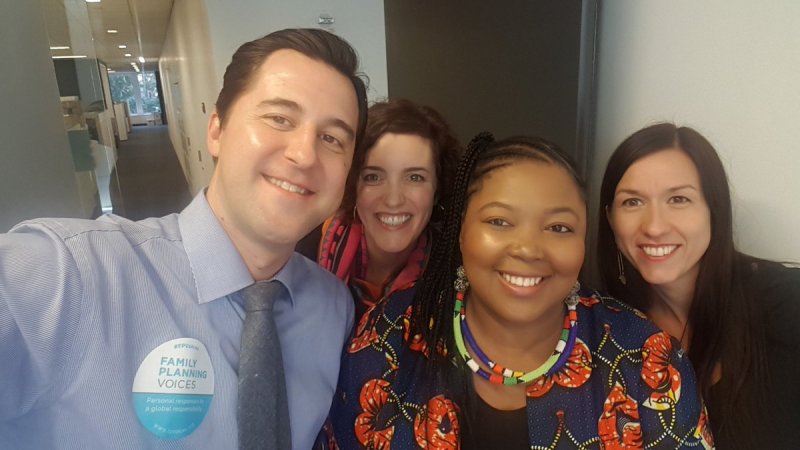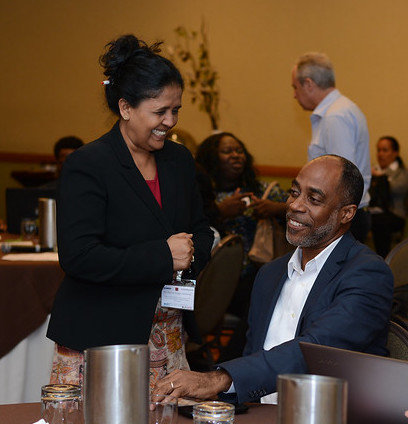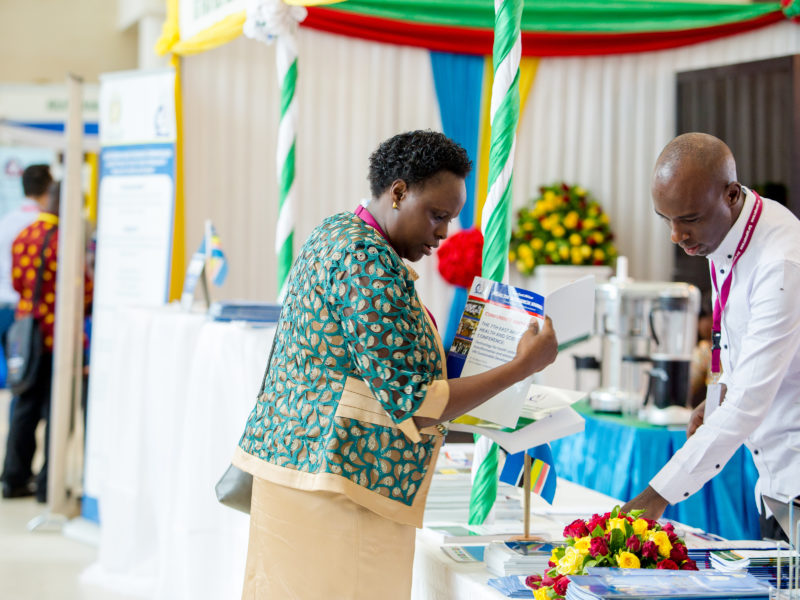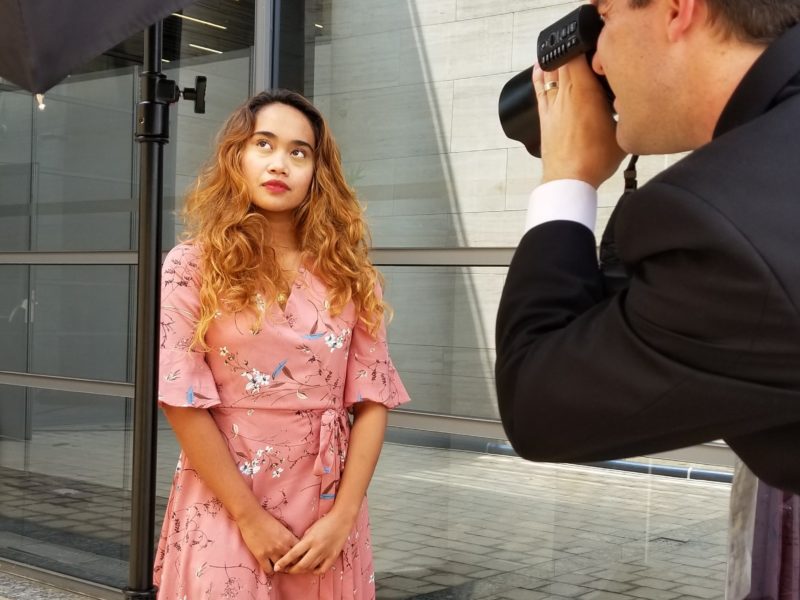There’s no better way to take the pulse of a movement than to listen to what its youngest leaders have to say. Last week, [CCP-led] K4Health and FP2020’s Family Planning Voices initiative did just that in New York City, when we interviewed the 2016 World Contraception Day Ambassadors and several winners of 120 Under 40: The New Generation of Family Planning Leaders about their commitment to expanding awareness of and access to contraception and related services to underserved populations. We spoke with young leaders from Uganda, India, Trinidad & Tobago, Canada, Lesotho, Poland, Vietnam, Egypt, South Africa, Nigeria, the Philippines, Kenya, and the U.S. about the work they’re being recognized for and their priorities for the future. While their countries, backgrounds, disciplines, and programs are diverse, several common threads that highlight the innovation that young people are bringing to the movement emerged from our conversations.
What are young changemakers talking about?
Marginalized populations. The young innovators we spoke with are all working to expand access to sexual and reproductive health services among a notably underserved population: young people. But, within that, a number of the Ambassadors and 120 Under 40 winners talked about their work to both highlight and meet the needs of marginalized young populations that are at best dramatically underrepresented and underserved—and at worst, completely ignored:
- Lesbian, gay, bisexual, transgender, and questioning (LGBTQ) populations
- People living with disabilities
- Indigenous and rural populations
Digital health. The overwhelming majority of plans and programs people described involved using technology to serve hard-to-reach populations. Our young colleagues are building web platforms, developing apps, and using SMS to connect underserved populations with sexual and reproductive health and rights (SRHR) information, services, and other resources. By giving young people the opportunity to have their questions answered directly by experts, test and expand their knowledge by competing against peers, find youth-friendly services in their vicinity, and more, these young innovators are making a real difference in the lives of adolescents and youth.
Addressing cultural norms and taboos. Despite their outspoken passion for sexual and reproductive health and rights, many of the young people we spoke with grew up in homes or communities where these issues are taboo. Several Ambassadors and winners described their work with adolescents, parents, religious communities, teachers, and health service providers to increase understanding of the multifaceted benefits of ensuring that adults are having conversations about these issues with the young people in their care and that young people have access to SRHR and related information and services.
Word choice. We heard people say over and over again that the term “family planning” simply doesn’t speak to young people (or their caretakers or health care providers), who may be years away from thinking about having a family. I’ve heard U.S.-based colleagues brainstorm new terms that might appeal more to youth (for example, “future planning,” “future fab,” or “get smart”), but I haven’t seen any of them take hold. I asked a number of young leaders what term they thought was most effective for young people. The good news? Everyone suggested terms for youth-focused family planning programming we already know and use: “contraception” and “sexual and reproductive health and rights.”
The power of narrative. We listened to the World Contraception Day Ambassadors and several 120 Under 40 winners describe their plans to document and share the stories of individuals who represent the populations whose needs they are working to address. There was a strong sentiment that, by allowing policy makers, religious leaders, and other decision makers to hear directly from individuals who are too often written off as non-existent or undeserving of attention, the storytellers might begin to raise awareness, change minds, and improve the situations of historically underserved populations, including transgender people and people living with disabilities.
Family Planning Voices believes in the power of narrative, too. Over the coming weeks and months, we are excited to bring you the stories of these young changemakers who are working tirelessly in the face of cultural, financial, and geographic barriers to expand access to sexual and reproductive health and rights. They do it because they know it will change the world for the better. On World Contraception Day, K4Health recognizes and applauds the World Contraception Day Ambassadors, the 120 Under 40 winners, and the countless other young leaders around the world who are changing the global sexual and reproductive health and rights landscape with their vision and hard work.
This post was written by Elizabeth Futrell, MSPH, Content Development Lead/Program Officer II at the Knowledge for Health (K4Health) Project. K4Health is the flagship knowledge management project of the U.S. Agency for International Development (USAID) Bureau for Global Health, Office of Population and Reproductive Health. K4Health is led by the Johns Hopkins Center for Communication Programs (CCP) in partnership with FHI 360, IntraHealth International, and Management Sciences for Health (MSH).





